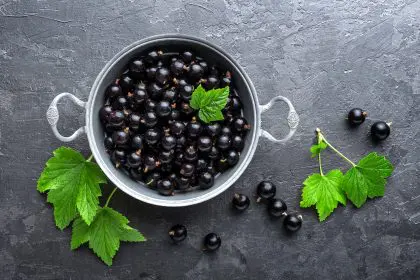For decades, carbohydrates have weathered a storm of contradictory health advice. First vilified as diet destroyers, then celebrated as essential energy sources, these dietary components now take center stage in longevity research. A major study published in JAMA Network Open has revealed that the quality of carbohydrates we consume in midlife may significantly influence how we age.
This research tracked over 47,000 women for more than three decades, analyzing their dietary patterns and subsequent health outcomes. The results challenge many popular notions about carbohydrates and present a more nuanced understanding of their role in the aging process.
What healthy aging really means
Healthy aging encompasses more than just living longer—it means maintaining independence, cognitive function, and quality of life as the years advance. The concept includes avoiding major chronic diseases, preserving physical mobility, maintaining mental sharpness, and sustaining positive emotional health.
While many factors influence aging outcomes, including genetics, lifestyle choices remain perhaps the most significant modifiable factor. The foods we eat throughout life create a cumulative effect that becomes increasingly apparent in our later years.
The ways quality carbs enhance aging outcomes
The recent research highlights several specific mechanisms through which high-quality carbohydrates promote healthier aging. Understanding these pathways can help motivate better dietary choices throughout adulthood.
1. Reduced inflammation throughout the body
High-fiber, minimally processed carbohydrates help regulate the body’s inflammatory response. Chronic inflammation accelerates aging processes at the cellular level, contributing to everything from wrinkles to heart disease. The fiber in quality carbohydrates feeds beneficial gut bacteria that produce anti-inflammatory compounds.
This effect creates a ripple of benefits throughout the body’s systems. Lower inflammation levels correlate with reduced risk of arthritis, cognitive decline, and cardiovascular problems—all critical factors in maintaining independence and function with age.
2. Better blood sugar regulation and metabolic health
Quality carbohydrates digest more slowly than their refined counterparts, creating gradual rises in blood sugar rather than dramatic spikes. This steadier metabolic response helps maintain insulin sensitivity throughout life.
The research found that women consuming more whole grains, fruits, and legumes maintained better metabolic health decades later. Conversely, those with diets high in refined carbohydrates showed increased rates of type 2 diabetes and metabolic syndrome, conditions that accelerate aging and increase disease risk.
3. Enhanced digestive health and microbiome diversity
The fiber in high-quality carbohydrates serves as food for the trillions of beneficial bacteria inhabiting our digestive systems. These microbes, collectively known as the gut microbiome, play crucial roles in immunity, hormone regulation, and even neurotransmitter production.
Researchers observed that participants maintaining fiber-rich diets throughout midlife developed more diverse and resilient gut microbiomes. This diversity correlates with better cognitive function, reduced frailty, and improved immune response—all essential components of healthy aging.
4. Improved cardiovascular resilience
Heart health remains a cornerstone of healthy aging, and quality carbohydrates support cardiovascular function through multiple mechanisms. The soluble fiber found in foods like oats, barley, and legumes helps manage cholesterol levels by binding to bile acids and removing them from the body.
Additionally, the potassium and magnesium abundant in whole plant foods help regulate blood pressure. The study found that participants consuming the highest quality carbohydrates experienced significantly lower rates of heart disease and stroke, major factors that can diminish quality of life in later years.
5. Better cognitive preservation
Perhaps most remarkably, the research showed strong associations between carbohydrate quality and cognitive function decades later. Women consuming higher amounts of whole grains, fruits, and vegetables showed better memory retention and executive function in their later years.
This cognitive protection likely stems from multiple factors: reduced inflammation in brain tissues, better vascular health supporting cerebral blood flow, and antioxidants that protect against oxidative damage to neurons. The cognitive benefits appeared particularly pronounced for those who maintained these dietary patterns consistently throughout midlife.
6. Greater physical functionality and mobility
Maintaining physical independence represents a crucial aspect of healthy aging. The research found that women who consumed higher quality carbohydrates throughout midlife demonstrated better physical functionality in their later years.
These participants maintained greater grip strength, walking speed, and balance—all practical measures that translate directly to everyday independence. The fiber, vitamins, and minerals in quality carbohydrates support bone density, muscle health, and joint function, preserving mobility as the years advance.
Which carbs promote healthy aging
The study identified specific carbohydrate sources associated with positive aging outcomes. Understanding these distinctions can help guide dietary choices for those looking to maximize their chances of aging well.
Whole grains emerged as particularly beneficial, with each daily serving increasing the likelihood of healthy aging. These include familiar options like brown rice, whole wheat bread, and oatmeal, as well as less common varieties like farro, barley, and quinoa.
Fruits and non-starchy vegetables also showed strong positive associations with healthy aging. The fiber, vitamins, minerals, and phytonutrients in these foods work synergistically to support cellular health and systemic function.
Legumes, including beans, lentils, and chickpeas, demonstrated some of the strongest positive correlations with healthy aging outcomes. These foods combine quality carbohydrates with substantial protein content, supporting muscle maintenance during the aging process.
The carbs that may accelerate aging
Not all carbohydrates support healthy aging. The research identified specific types associated with poorer outcomes, providing clear guidance on what to limit in the diet.
Refined grains, including white bread, pastries, and processed cereals, correlated with significantly lower chances of healthy aging. These foods undergo processing that removes fiber and nutrients, leaving primarily starch that rapidly converts to blood sugar.
Starchy vegetables like potatoes and corn showed a more modest negative association with healthy aging likelihood. While these foods contain beneficial nutrients, their higher glycemic impact may offset some benefits, particularly when consumed in large amounts.
Sugary foods and beverages demonstrated the strongest negative impacts on aging outcomes. Regular consumption of added sugars correlated with increased inflammation markers, accelerated skin aging, and higher rates of metabolic dysfunction—all factors that compromise quality of life in later years.
Practical ways to improve your carb quality
Improving carbohydrate quality doesn’t require radical diet overhauls. Small, consistent changes can significantly impact long-term health outcomes.
Start by examining your typical grain choices. Substituting whole grain versions for refined options represents a simple yet effective change. Look for breads where whole wheat or another whole grain appears as the first ingredient, and experiment with intact grains like quinoa, farro, or steel-cut oats.
Increase vegetable variety at meals by adding an extra color to your plate. Different colored vegetables contain distinct phytonutrient profiles that support various aspects of cellular health. Try adding roasted red peppers to pasta, spinach to smoothies, or purple cabbage to tacos.
Incorporate legumes several times weekly. If beans aren’t a regular part of your diet, start with familiar applications like hummus, bean-based soups, or adding lentils to salads. These versatile foods adapt to nearly any cuisine and provide exceptional nutritional value.
Rethink your snack options by choosing whole food alternatives to processed snacks. Fresh fruit with nuts, whole grain crackers with avocado, or plain yogurt with berries provide satisfying combinations of fiber, protein, and healthy fats that support stable energy levels.
When including starchy vegetables like potatoes, consider preparation methods that reduce their glycemic impact. Cooking and cooling potatoes creates resistant starch, which functions more like fiber in the body. Potato salad made with vinaigrette offers a better option than hot mashed potatoes.
Limit added sugars by focusing on naturally sweet foods like fruit when cravings strike. The fiber in whole fruits moderates blood sugar response while providing valuable nutrients that support cellular health.
Age-related nutritional considerations
As we age, nutritional needs evolve, requiring adaptations to dietary patterns established earlier in life. Understanding these changing requirements can help maximize the benefits of quality carbohydrates throughout the lifespan.
Protein needs increase with age as muscle maintenance becomes more challenging. Pairing quality carbohydrates with adequate protein supports both metabolic health and physical function. Consider combinations like whole grain toast with eggs, lentil soup with Greek yogurt, or quinoa salad with chicken.
Nutrient absorption typically decreases with age, making food quality increasingly important. The nutrient density of whole grains, fruits, vegetables, and legumes becomes even more valuable as the body requires more nutrients from less food.
Hydration needs often go unrecognized but remain crucial for digestion, circulation, and cognitive function. Many fruits and vegetables contribute significant water content along with their fiber and nutrients, supporting overall hydration status.
Appetite changes commonly occur with aging, sometimes making adequate nutrition challenging. The fiber in quality carbohydrates helps regulate appetite signals and digestive function, promoting more consistent nutritional intake.
The bigger picture: lifestyle factors beyond carbs
While carbohydrate quality significantly impacts aging outcomes, the research emphasizes that dietary choices exist within a broader context of lifestyle factors that collectively determine health trajectories.
Regular physical activity works synergistically with quality carbohydrates to promote healthy aging. Exercise enhances the body’s ability to utilize carbohydrates efficiently, improves insulin sensitivity, and supports the cardiovascular system that delivers nutrients throughout the body.
Adequate sleep quality increasingly affects metabolic health and inflammatory status as we age. Interestingly, diets rich in quality carbohydrates may support better sleep through their effects on tryptophan availability and serotonin production, creating a beneficial cycle.
Stress management techniques become increasingly valuable for healthy aging. Chronic stress accelerates cellular aging through multiple pathways, potentially undermining the benefits of even the most nutritious diet. Mindfulness practices, social connections, and purposeful activities all contribute to stress resilience.
Social engagement consistently emerges as a powerful factor in aging outcomes. Sharing meals centered around quality carbohydrates—like Mediterranean-style family dinners featuring whole grains, vegetables, and legumes—combines nutritional benefits with valuable social connection.
Building sustainable habits for long-term success
The longitudinal nature of the research highlights an essential point: consistent dietary patterns throughout midlife produce the most significant impacts on aging outcomes. This finding underscores the importance of sustainable approaches rather than short-term changes.
Focus on gradual transitions when improving carbohydrate quality. Small substitutions maintained consistently yield greater benefits than dramatic but unsustainable overhauls. Try replacing one refined grain with a whole grain option weekly until these choices become automatic.
Develop cooking skills that make whole foods more appealing. Simple techniques like roasting vegetables to enhance their natural sweetness, preparing grains in flavorful broths, or learning to properly cook legumes can transform these foods from obligations to cravings.
Plan for convenience by keeping quick, high-quality options available. Prepare extra whole grains to freeze in portion-sized containers, keep canned beans on hand for fast meals, and wash fruits immediately after purchase to encourage snacking.
The research reveals that quality carbohydrates represent a powerful tool for influencing how we age. By making informed choices about carbohydrate sources throughout adulthood, we can significantly improve our chances of maintaining health, independence, and quality of life in our later years.















